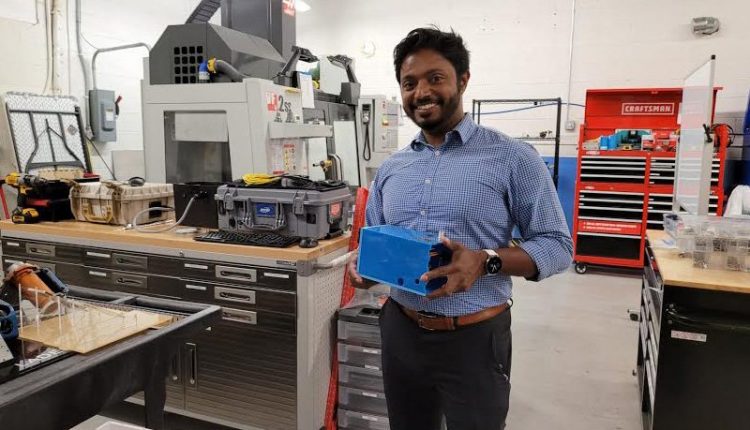
PETALING JAYA: A Malaysian-American mechanical engineer, Guruthisvaran Ramu, has offered to give a breathing support device free of charge to countries affected by the Covid-19 pandemic.
The device, named EcoFlo, is a low-cost continuous positive airway pressure device intended for Covid-19 patients to cope with breathing difficulty at home, in transit to hospital, and while awaiting treatment in the triage room.
He said EcoFlo will help avoid the need for full ventilation, is non-invasive and would free up ventilators in intensive care units for the critically ill. “An ICU ventilator usually requires the patient to be intubated, while EcoFlo can be used to keep airways open using air pressure,” said Guru.
“I would like to hand out the units to hospitals and medical staff at no cost to them,” Guruthisvaran (Guru), 34, said in an email interview.
“Our goal is to make the design and manufacturing details of EcoFlo free and available to the entire world so that manufacturers in developing countries can produce it for their own citizens,” he said.
Guru intends to build 1,000 units with his team of nine other engineers to donate to hospitals and first responders in hard-hit countries as soon as the regulatory agencies give the go-ahead.
The idea for the device came from Guru’s childhood friend, emergency medicine doctor Prabhu Selvam, while Guru used his experience as a contractor with Nasa, the US space agency, to bring about the invention.
Guru works in space exploration technology, developing instruments to measure carbon dioxide and methane in the atmosphere.
Guru’s parents migrated to the US 30 years ago, at about the same time as Prabhu’s family. His father, Ramu Arumugam, was a former military man from Alor Setar, and his mother, Vasanthi Ethurajoo, from Teluk Intan.
How did the EcoFlo venture begin?
He said he and Prabhu had initially teamed up to work on a ventilator about a year before the Covid-19 pandemic began but switched to building a CPAP device when coronavirus cases surged, health systems worldwide collapsed and ventilators were in short supply.
“We did not want to patent the concept because we wanted EcoFlo to be freely available to all. “Besides helping to save lives, it will ensure that ventilators, a limited resource, are used only for the most severely ill,” said Guru, who is president and CEO of Mach 33 Engineering, based in Maryland.
Guru was hopeful the technology will reduce the pressure on intensive care staff and beds, prevent Covid-19 patients from quickly developing acute breathing difficulties, as well as help patients recover without the need for invasive ventilation.
He added his firm was willing to provide designs and the list of parts so that anyone could improve or create their own version of the technology.
“The initial idea was to provide access to manufacturers who want to help but we were worried they will use our research and try to profit from it. If companies take our devices and sell them, that violates our purpose in doing this,” he said.
Guru said it cost US$250 (RM1,035) to fabricate EcoFlo, which uses a blower normally meant for hospital-grade ventilators. Similar low-cost CPAP devices for use in the home cannot handle the volume flow required for patients with lung dysfunction, he added.
Hospital-based CPAP machines cost between US$6,000 and US$10,000 or more and are used for patients with poor oxygen exchange in the lungs.
“Part of the issue with Covid is that it prevents normal breathing, and this device will measure the amount that you can breathe in, and judge whether you need more air or not,” Guru said, adding the machine was a scarce and costly resource in developing nations.
He said: “We are now trying to buy components through crowdfunding and will fund the effort ourselves if we are unable to raise additional money in time.”
A family friend, Raj Munusamy, 58, said Guru’s father, who owns and operates assisted-living homes for the elderly, was a community leader for the many Malaysian families in the Washington DC metropolitan area.-FMT
